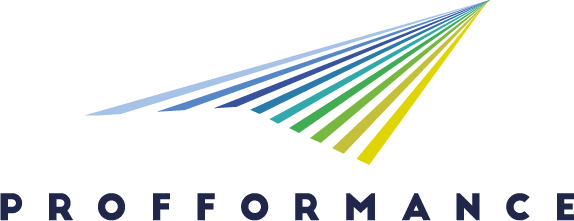IntElMSc PARFORCE
Experimental Testing Based on Impact and Resistance: Wind, Fire and Earthquake
- 01 - Education
- 05 – Natural sciences, mathematics and statistics
- 06 – Information and Communication Technologies
- 07 – Engineering, manufacturing and construction
2. Innovative teaching and learning
- Differentiated instruction - promoting diversity of materials and learning styles
- Online and offline cooperative and collaborative work – developing engaging dynamics in the learning process
- Innovative online and blended learning methods, engaging and participative hybrid learning organization
- Case-based teaching, case study – object of study to put into practice the knowledge acquired through a real, fictitious or adjusted description/case of reality.
The project aimed at developing a joint platform for digital / virtual laboratory experiments to support European civil engineering HE. The main objective of the project was achieving the availability of various laboratory experiments carried out at another institutition by means of virtual reality (VR), in the framework of an innovative, digitized and international elective online MSc course curriculum taught jointly and combined with a blended mobility collaborative learning. In detail, the objectives of this partnership / good practice were: development of a concept for performing experiments in a VR environment including the definition of minimum standards necessary for implementing the concept in HE of civil engineers; elaboration of an openly accessible platform for VR experiments; preparation of VR experiments by each project partner and their integration into the open platform; provision of approved e-learning scenarios (teaching methods and learning media) for digital and collaborative learning environment, taking benefit from the partner expertise and facilities for newly introduced jointly taught MSc and PhD courses in CE; implementation of collaborative online international learning opportunities for MSc students at partners universities in form of jointly supervised courses; increasing the quality and attractiveness of the study programs at the project partners through inclusive, sustainable, and integrated internationalization and digitalization of curricula which will ultimately improve the international competitiveness of the partners in the global competition for highly qualified and socially committed scientific talents from all over the world. The cooperation was consiting in the training of MSc students from all partners and the cooperative elaboration of blended learning materials / classes. The addressed topics were usually not part of the MSc courses especially in combination with intercultural exchange. The collaborative work and courses were conducted among the participating MSc students and involved lecturers. The application of the concept of immersive 3D representations for detailed and realistic real-time visualization in Virtual Reality for the provision of laboratory tests supported students to easier and faster create their own “mental models”, and the use of modern technologies in eLearning required exchange of best practice and the broader use of problem-based learning (PBL) in an international & digital environment.
Methodology
Tools, equipment, technology used
Outcomes and outputs, main results
Lessons learnt
Adaptability and sustainability of the best practice (for other institutions)
Promotion of best practice
Scope and impact
- Course/department level
- Faculty level
- Institutional level
- Cross-institutional level
- National level
- EU/EHEA/International level
6.1 Digitalization
- Outstanding, innovative, excellent practices of online / blended / hybrid learning
- Innovative, novel methodology in using digital tools/devices in teaching
- Digital skills development and assessment both general and profession-related, embedded in course design, in teaching and assessment
- Novel digital solutions (tools, frameworks, devices, tasks to enhance efficiency and motivation)
- Artificial intelligence and learning analytics in education and training
Reasoning: The good practice sought to develop a VR concept for experiments, create an open platform for it, and have each partner prepare and integrate their VR experiments into the platform. It provided approved e-learning scenarios for a digital and collaborative learning environment, and implement collaborative online international learning opportunities for MSc students at partner universities established via Moodle. The methods and algorithms for evaluating digital learning tools were developed. This allowed the educators and students to assess the effectiveness of the tools used in the project and make necessary adjustments. The project implemented remote-access experiments in structural engineering. This allowed students to gain practical experience and knowledge in experimental studies not available at their home university. Participants were able to implement what they have learned in various learning media on their own initiative and in consultation with the lecturers.
6.2 Internationalization
- Outstanding practices of international online collaborative learning
- Innovative practices of blended mobility
- Courses implemented in international cooperation (projects, co-teaching, virtual/blended mobility, etc.)
- Courses offered to international multicultural students both online and offline
Reasoning: The good practice aimed to revolutionize civil engineering education with VR experiments by means of blended courses. It enhanced the quality and attractiveness of study programs through inclusive, sustainable, and integrated internationalization and digitalization of curricula with VR labs, thereby improving the international competitiveness of the partners, with the main objective to develop a joint platform for digital/virtual laboratory experiments to support European civil engineering HE.
6.3 Inclusion and diversity, universal design
- Inclusive course design, universally designed divers activities to meet special students' needs
- Innovative teaching methodology for inclusion and meet diverse student needs
- (Innovative) use of devices and tools for inclusion
Reasoning: The good practice addressed several needs: enhancing competence through understanding learned material, which was challenged by the Covid-19 pandemic's impact on physical lab experiments; adapting to online learning's need for individual e-learning materials and didactics; and preparing the next-generation workforce for multi-disciplinary blended learning experts. The disability or economic/geographical/social obstacles were not an issue to gain experience in participating VR experiments.
6.4 Sustainability
- Sustainability goals are addressed in the course(s)
- Teaching material contains profession related sustainability aspects
- Special courses reflecting to UN 2030 Sustainability goals, Green Deal - mini-courses, microcredentials
Reasoning: The good practice contributed sustainably to the UN Agenda 2030 goals by establishing virtual experimental setups, which will also be accessible to external stakeholders in the future. High-resolution VR laboratories have been compiled and are available on the project website. The e-course was conducted in the 2022/23 academic year as a project activity (within budget compliance) and is scheduled for 2024/25 with ERASMUS+ BIP funding.
3.3 Public contact datas
| Name | Email address | Website |
|---|---|---|
| Davorin Penava | davorin.penava@gfos.hr | https://www.uni-weimar.de/en/civil-and-environmental-engineering/chairs/advanced-structures/research/finished-projects/parforce/ |

